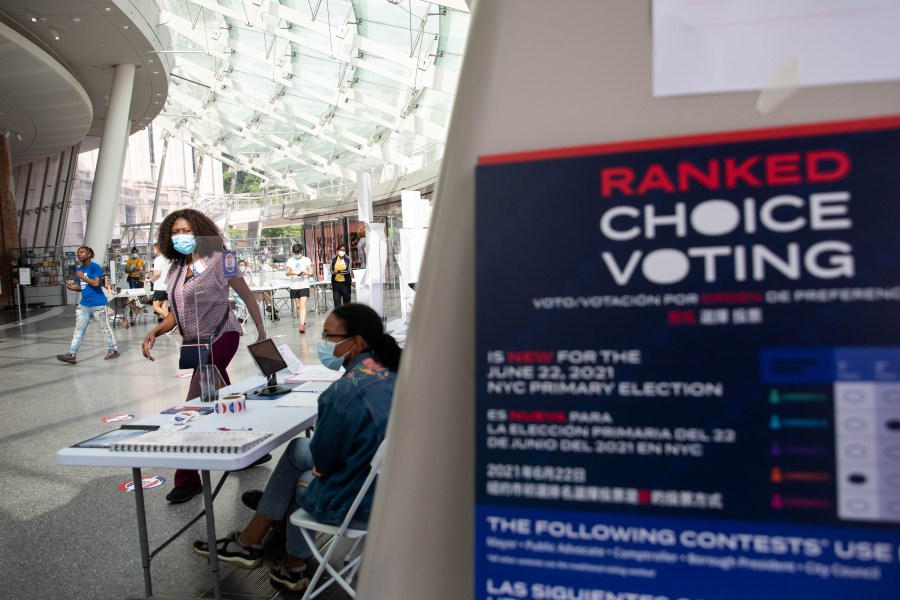(NewsNation) — Ranked choice voting (RCV) refers to a election system where voters rank candidates on a ballot in order from most preferred to least, instead of choosing only one.
While RCV is a common practice globally, it is less utilized in the United States. However, numerous jurisdictions across America have adopted the practice and voters in several states will decide whether to adopt the method in November.
What is ranked choice voting?
Ranked choice voting allows voters to rank multiple candidates in order of preference instead of voting for one candidate over another. If no candidate gets a majority, the candidate with the least votes or with the lowest preference, is knocked out of the race. Voters who chose the last-placed candidate as their top choice will have their votes reallocated based on their second preference and a runoff takes place.
Alaska adopted ranked choice voting in 2020. Using the presidential race as an example, voters in Alaska will have nominees former President Donald Trump and Vice President Kamala Harris in addition to six other candidates on their ballots.
Donald Trump vs. Kamala Harris: How policies compare
If Trump or Harris receive more than 50% of first-choice votes in Alaska, they will win the state outright, as is customary. If neither do, then ranked choice tabulation comes into effect.
Voters whose first choice was the last-placed candidate will have their votes reallocated based on their second preference. This process is repeated until one candidate — certain to be Trump or Harris — has more than 50% of the vote.
Ranked choice voting pros and cons
Proponents of ranked choice voting believe it makes elections fairer and more representative of constituents’ thoughts. Advocates believe ranked-choice voting can be used to determine the candidate with the strongest support across an entire electorate.
Common criticisms of this system include that it is incongruent with the “one person, one vote” mantra and that candidates with the most first-choice votes can lose.
Changing the longstanding voting practices across the U.S. not only could create complications for voters adjusting to a new practice but there are likely to be high costs initially.
According to research from Kennesaw State University, the Georgia Senate runoff election in 2020 cost the state $75 million.
Where is ranked choice voting used?
People hold signs in support of Yes On 2, the ranked choice voting ballot question, outside Boston City Hall in Boston on Oct. 30, 2020. (Jonathan Wiggs/The Boston Globe via Getty Images)
Alaska and Maine are the only states using RCV in the 2024 presidential election. There are eight candidates on Alaskans’ presidential ballot, allowing voters to rank them 1-8. Voters do not have to use all eight votes.
By comparison, Maine voters will have five candidates and a write-in spot.
How to register to vote
According to RCV Resource Center’s March report, the voting system is operational in California, Maryland, Massachusettes, Minnesota, New Mexico, New York, Oregon, Utah, and Virginia, in various capacities.
Some Alaskans are in favor of repealing ranked choice voting, arguing it is confusing and rewards candidates who would otherwise not receive support.
What countries use ranked voting?
Ballot papers for a House of Representatives seat in Western Australia in 2010. (Paul Kane/Getty Images)
Australia adopted the practice before any other country in the world. It is used in electing politicians to the Senate, and House of Representatives at a federal level. On the state level, it is used for assembly elections.
The Republic of Ireland and Malta have used RCV since 1921 and currently have the system for parliament, local government, and EU parliament elections. In addition, the Republic also has RCV for presidential elections.
Northern Ireland uses ranked voting for local elections, the EU parliament, and the national assembly. Papua New Guinea has RCV for parliament, while Scotland employs it for local council elections.
